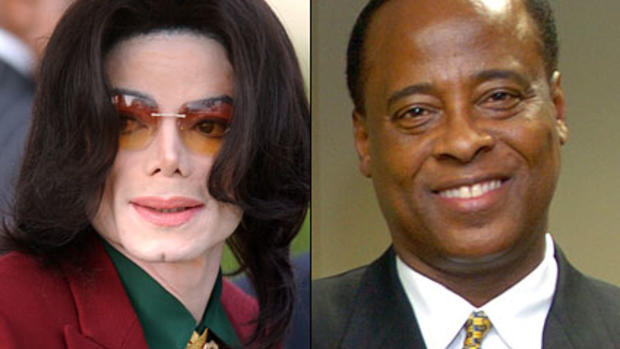Expert: Conrad Murray displayed gross negligence
(CBS/AP) LOS ANGELES - An expert witness for the prosecution Wednesday told jurors in the involuntary manslaughter trial of Michael Jackson's physician, Dr. Conrad Murray, that Murray displayed gross negligence in his treatment of the singer and repeatedly violated the standard of care.
Pictures:
Who's who in the trial of Dr. Conrad Murray
Pictures:
Michael Jackson's Doctor Trial
Video:
Dr. Conrad Murray manslaughter trial begins
Prosecutors are in the final stages of their case against Murray, with three expert witnesses set to testify about their impressions of Murray's actions in the days and hours before Jackson's death and his efforts to revive him.
On Wednesday, Deputy District Attorney David Walgren called Dr. Alon Steinberg, a cardiologist, to testify.
Steinberg said Murray lacked the proper propofol monitoring or life-saving equipment when he was giving Jackson the anesthetic and other sedatives as a sleep aid. Steinberg said Murray should have never given Jackson the anesthetic outside a hospital setting, and criticized his attempts to resuscitate Jackson.
Steinberg said he based his testimony on statements Murray made to police about the dosages of propofol and other sedatives that he gave Jackson, and that the doctor had left the room for only two minutes before finding the singer unresponsive. He said based on Murray's characterization, Jackson could have been saved if the proper equipment were present and proper life-saving techniques were employed.
Asked by defense attorney J. Michael Flanagan whether his opinion would change if it was revealed that Murray had been out of the room for longer than two minutes, or had been on the phone while Jackson slept, Steinberg said no.
"He shouldn't have been on the phone," Steinberg said. "You can't talk on the phone. "
Authorities say Murray gave Jackson the fatal dose in June 2009. A medical examiner told jurors Tuesday that it was unreasonable to believe that Jackson gave himself the fatal dose of propofol when Murray left the room for only two minutes.
Murray has pleaded not guilty to involuntary manslaughter. If convicted, he faces up to four years in prison and loss of his medical license.Complete coverage of the Conrad Murray - Michael Jackson case on CBS News

